Aeschines: The Orator of Ancient Athens
The history of classical Athens abounds with figures who shaped its democratic legacy and oratorical brilliance. Among them stands Aeschines, a prominent yet often overshadowed orator of the 4th century BC. Unlike some of his contemporaries, Aeschines had a life marked by dramatic transformations and rhetorical battles that illustrate the vibrant political culture of ancient Greece. This article delves into the life and influence of Aeschines, exploring his role as a public speaker and political figure.
The Early Life of Aeschines
Born in Athens in 389 BC, Aeschines was the son of an elementary school teacher named Atrometus and a local priestess named Glaucothea. Despite not being part of the Athenian aristocracy, Aeschines’ upbringing was comfortably modest, suggesting that his family valued education. As a young man, he assisted his father in teaching, an early exposure to the power of words and rhetoric.
Before his entrance into political life, Aeschines tasted military service. He was part of several crucial battles, including the Battle of Mantinea in 362 BC, which played a significant role in shaping the political dynamics between Greek city-states. This military experience provided him not only with a diverse skill set but also a network of influential acquaintances that later supported his political ambitions.
The Path to Oratory
Aeschines first dipped his toes in politics as a scribe and clerk for the Athenian state, a position that offered him an understanding of bureaucratic complexities and the inner workings of Athens’ political realm. His linguistic talents and charismatic persona soon earned him the favor of powerful figures, allowing him to transition into more visible public roles.
His transition into the world of oratory, however, was not without its challenges. Aeschines lacked the inherited wealth and connections that many other orators enjoyed. Yet, his perseverance and skills in rhetoric opened the gates to a successful career. His speeches, which were known for their directness, emotional appeal, and strategic use of classical references, resonated with both the elite and the common citizens.
Rivalry with Demosthenes
Perhaps the most defining aspect of Aeschines' career was his intense rivalry with another renowned Athenian orator, Demosthenes. This rivalry, deeply entwined with the political conflicts of their time, characterized much of his public life and speeches. The two orators found themselves on opposite sides of the political spectrum, particularly in their views on the threat posed by Philip II of Macedon.
Aeschines, more pragmatic and cautious, occasionally favored a diplomatic approach towards Macedon, seeking alliances that could ensure Athens' safety without direct conflict. On the other hand, Demosthenes vehemently opposed such a stance, advocating for a more confrontational approach to defend Athenian independence and democracy. Their debates, laden with accusations and counteraccusations, filled the public sphere with compelling drama.
One of the most notable incidents between the two was the affair of the Peace of Philocrates in 346 BC. Aeschines was heavily involved in the negotiation of this treaty, which ended the conflict between Athens and Macedon. Despite facing fierce opposition from Demosthenes and his supporters, Aeschines managed to defend his position.
The Trials and Tribulations
The rivalry culminated in a series of legal battles that captured public attention. The most famous of these was the trial on the legality of the peace treaty, known as the "Crown" case. Demosthenes accused Aeschines of treachery and corruption, a charge that Aeschines combated with his defense speech "On the Embassy." Although unsuccessful in his defense, Aeschines’ speech remains a poignant example of classical rhetoric, illustrating his skills in argumentation and oratory.
These legal confrontations showcased Aeschines' deft command of language, his ability to sway public opinion, and the personal stakes involved in Athenian politics. They were theatrical encounters that demonstrated the democratic process's vibrancy and the significant role played by oratory in policy-making and public discourse.
Legacy of Aeschines
While Demosthenes eventually triumphed in their rivalry, Aeschines' contributions to the political and oratorical traditions of Athens remain significant. His speeches have survived through the ages, reflecting the complex interplay between power, politics, and persuasion in classical Athens. Furthermore, his ability to rise from a relatively obscure background to the forefront of Athenian politics exemplifies the transformative potential of rhetoric in the ancient world.
Aeschines' life and works serve as a testament to his era, offering insights into the political dynamics and cultural milieu that defined Athens in the 4th century BC. Through his articulated arguments and public engagements, Aeschines left an indelible mark on the history of rhetoric and political discourse. His story continues to captivate historians and readers alike, representing a critical segment of the Athenian democratic experiment.
Aeschines' Influence on Rhetoric and Education
While Aeschines’ political career was defined by his rivalry with Demosthenes, his contributions to the realm of rhetoric extended far beyond their public confrontations. Aeschines' oratorical style was distinguished by its clarity and emotional depth, setting a benchmark against which later orators measured themselves. Unlike the more structured and rational approaches in rhetoric employed by his contemporaries, Aeschines often engaged his audiences through vivid storytelling and pathos, which appealed directly to the emotions.
This style was particularly evident in his surviving speeches, which reveal his adept use of narrative and characterization. By crafting compelling personal anecdotes, Aeschines could paint his opponents, particularly Demosthenes, in a negative light while also casting himself as a trustworthy and noble figure. These methods underscored the broader Greek tradition of using rhetoric as a tool not just for persuasion but also as an art form intertwined with civic life.
Moreover, Aeschines had a lasting impact on education, particularly in the rhetorical schools of ancient Athens. After his political career waned, Aeschines is believed to have established his own school. Here, he taught the principles of rhetoric and articulated his unique philosophy on oratory, influencing young Athenians and aspiring rhetoricians. The educational institutions of the time were vital for cultivating civic and political leaders, and Aeschines’ influence helped shape the next generation of thinkers who valued eloquence and persuasion.
Aeschines in Exile
The climax of Aeschines' political and legal struggles led to his decision to leave Athens after losing the "Crown" trial to Demosthenes in 330 BC. This self-imposed exile did not silence him, nor did it diminish his influence. Aeschines relocated to Rhodes, where he established himself as a respected figure in the local community and continued his engagement with rhetorical education.
In Rhodes, Aeschines founded another school, where he continued to teach rhetoric. His school became renowned for its emphasis on emotional appeal and effective communication, attracting students from across the Greek world. Aeschines’ approach provided a practical counterbalance to the more philosophical and speculative methods propagated by other contemporary schools, allowing many students to find relevance and immediate application in their pursuits of diplomacy and public service.
Anecdotes about his time in Rhodes recount that Aeschines would read his courtroom speeches to illustrate effective argumentation and delivery. On one occasion, after reading his "On the Embassy" speech to a captivated audience, a student remarked on the power of his rhetoric by saying, "How lucky Demosthenes was, to have Aeschines as an opponent!" This anecdote conveys not only the lasting impression of Aeschines' rhetorical skills but also the enduring competitive spirit that defined his career and legacy.
The Enduring Legacy of Aeschines
Aeschines' contributions have echoed through the centuries, providing insights into the political, social, and rhetorical landscapes of ancient Greece. While often overshadowed by the legacy of Demosthenes, Aeschines' speeches are integral to understanding the period's intellectual and cultural contests. His methods and speeches have survived as part of the classical canon, studied by students of rhetoric and history alike for their artistry and strategic acumen.
In the broader context of Greek history, Aeschines represents the complexities and contradictions inherent in Athenian democracy. His career exemplifies the tenuous balance between individual ambition and civic duty, a theme that resonates with modern political discourses. The intense rivalries and public debates he participated in were not merely events of personal aggrandizement but were pivotal in shaping public policy and influencing the future course of Athenian politics.
Moreover, his exile and subsequent life in Rhodes highlight the interconnectedness of the Greek world, where ideas and individuals could navigate across polis boundaries, contributing to a shared Hellenic culture. Aeschines' ability to adapt and thrive outside of Athens demonstrates the versatility and enduring appeal of Athenian rhetoric throughout the Greek world.
Aeschines in Historical Context
To appreciate Aeschines' place in history, it is essential to examine the context of his life and career. The 4th century BC was a period of significant transition for Athens and the wider Greek world. The traditional power of the Greek city-states was increasingly challenged by the rise of Macedon, culminating in the sweeping conquests of Alexander the Great. Aeschines' political life reflects the turbulent and often fractious nature of this epoch, where the need for effective diplomacy and persuasive oration became even more pronounced.
The world Aeschines navigated was one filled with both internal strife and external pressures. His career captures the democratic tensions of Athens—between populism and elitism, peace and war, tradition and innovation. Through his participation in such debates, Aeschines contributed to shaping the narrative and response of Athens to these challenges. His life's work illustrates the tension between individual rhetorical prowess and the collective decision-making process in a rapidly evolving political landscape.
Ultimately, Aeschines reminds us that the history of classical Athens is not just the story of renowned figures like Socrates or Pericles, but also of those who navigated the corridors of power through eloquence and debate. His achievements and struggles offer a window into an era of profound intellectual and political activity, making Aeschines a figure of enduring study and relevance.
The Rhetorical Craftsmanship of Aeschines
Aeschines’ speeches provide an invaluable glimpse into the craftsmanship of ancient rhetoric, highlighting the nuanced techniques he employed to sway and persuade. His orations exhibit not just eloquence but a profound understanding of human psychology and emotion. Unlike his rival Demosthenes, who frequently utilized structured and logical arguments, Aeschines favored a more evocative approach, often drawing on pathos to engage his audience deeply.
One technique Aeschines frequently employed was vivid imagery. He excelled in painting pictures with words, crafting scenes that echoed in the minds of his listeners. This talent allowed him to evoke sympathy or disdain as needed, making his rhetoric powerful and adaptable to various contexts. His speeches were laced with literary allusions and references that demonstrated his deep engagement with Greek cultural and literary traditions, thus establishing his credibility and authority.
In addition, Aeschines was noted for his skill in character assassination, particularly when it came to his political and ideological opponents. By focusing on the moral character and personal failings of adversaries rather than just their policies, Aeschines could sway public opinion and discredit rival arguments effectively. This tactic, which modern readers might recognize in contemporary political arenas, underlines the timeless nature of certain rhetorical strategies.
Aeschines and the Development of Greek Oratory
Aeschines' influence on Greek oratory can be considered both a continuation and an innovation. While he upheld many of the established traditions of classical rhetoric, he also adapted his style to address the unique demands of his time, when the political landscape was shifting rapidly under Macedonian influence. His contributions to the field extended the reach and adaptability of oratory, preparing it to play a critical role in the administrations of both Greek and Hellenistic states.
His emphasis on the emotional appeal in speech-making anticipated future developments in rhetorical theory, paving the way for later rhetorical schools that would emerge during the Hellenistic period. In this context, Aeschines can be seen as a bridge between the classical rhetoric of Athens and the more elaborate and varied rhetorical traditions that would follow.
Furthermore, Aeschines' interactions with students and fellow orators helped disseminate his innovative techniques across the Greek world. As Greek culture expanded under Alexander the Great and his successors, the methods and approaches taught by Aeschines influenced a wide array of successors, many of whom would integrate his teachings into their rhetoric, further embedding his legacy in the annals of history.
Perspectives on Aeschines from Later Historians
Aeschines has been the subject of varied interpretations by historians across centuries. In antiquity, his reputation was somewhat eclipsed by that of Demosthenes, largely due to the latter’s more extensive body of work and Alexander's subsequent portrayal of Athens as a bastion of resistance against Macedonian hegemony. Yet Aeschines was acknowledged for his rhetorical brilliance and pragmatic approach, qualities that resonated with scholars and political thinkers.
In modern times, historians have revisited Aeschines with a more balanced lens, appreciating the complexities of his political stances and the skill with which he crafted his speeches. His life has been scrutinized not just for its dramatic legal battles but also as a reflection of the broader socio-political trends of 4th century BC Greece. Scholars have noted the tensions within his rhetoric between the personal and the public, an attribute that continues to interest those exploring ancient political discourse.
Moreover, Aeschines has inspired comparative studies with orators and public figures from other eras, providing critical insights into the universality of certain rhetorical traditions and dilemmas. His life and work offer a rich tapestry from which to draw connections between the classical past and the modern present, illustrating how certain rhetorical strategies and political narratives remain relevant through the ages.
Conclusion: Aeschines' Place in History
Aeschines stands as a complex and dynamic figure within the history of Athens and Greek oratory. His contributions were not merely limited to his rivalry with Demosthenes but also spanned the educational and rhetorical landscapes of the ancient world. Through his mastery of language and persuasion, Aeschines exemplified the power of rhetoric as a tool for shaping public opinion and influencing political outcomes.
His legacy, while often overshadowed, persists in the study of classical rhetoric, providing a counterbalance to the work of his contemporaries. Aeschines’ life embodies the tension and the potential within democratic societies to engage and transform through dialogue and debate. The lessons gleaned from his rhetorical techniques and political participation continue to be relevant, offering timeless insights into the art of persuasion and the role of individuals within the civic arena.
Through a life marked by both triumph and exile, Aeschines left an indelible mark on history, symbolizing the enduring influence of rhetoric in the public sphere. As students of history and rhetoric examine his speeches and strategies, they not only uncover the complexities of his world but also recognize the echoes of his legacy in contemporary times. Aeschines, thus, remains a potent reminder of the transformative power of words and the persistent relevance of ancient wisdom in modern discourse.
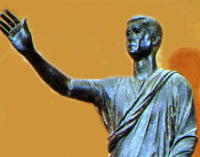
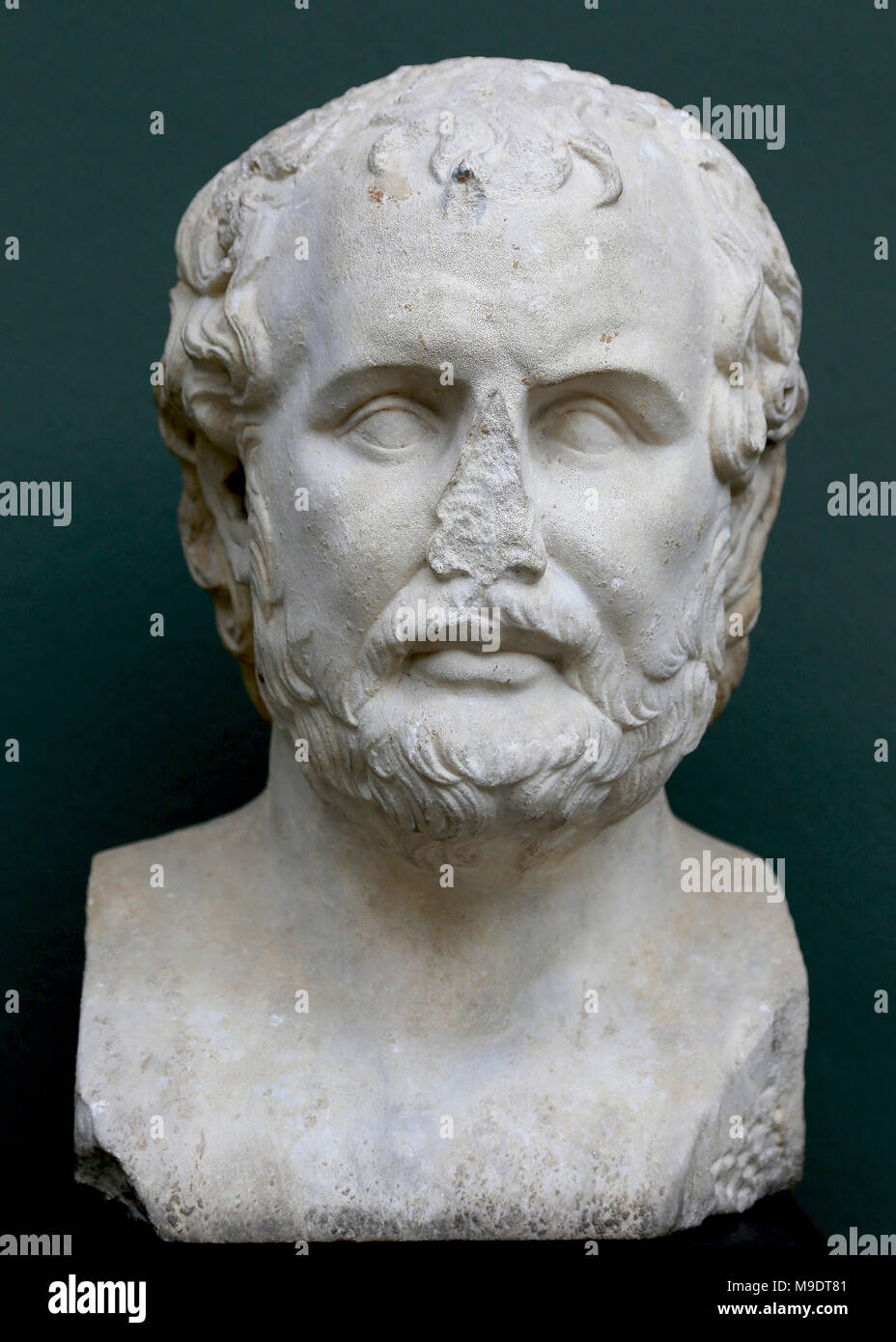


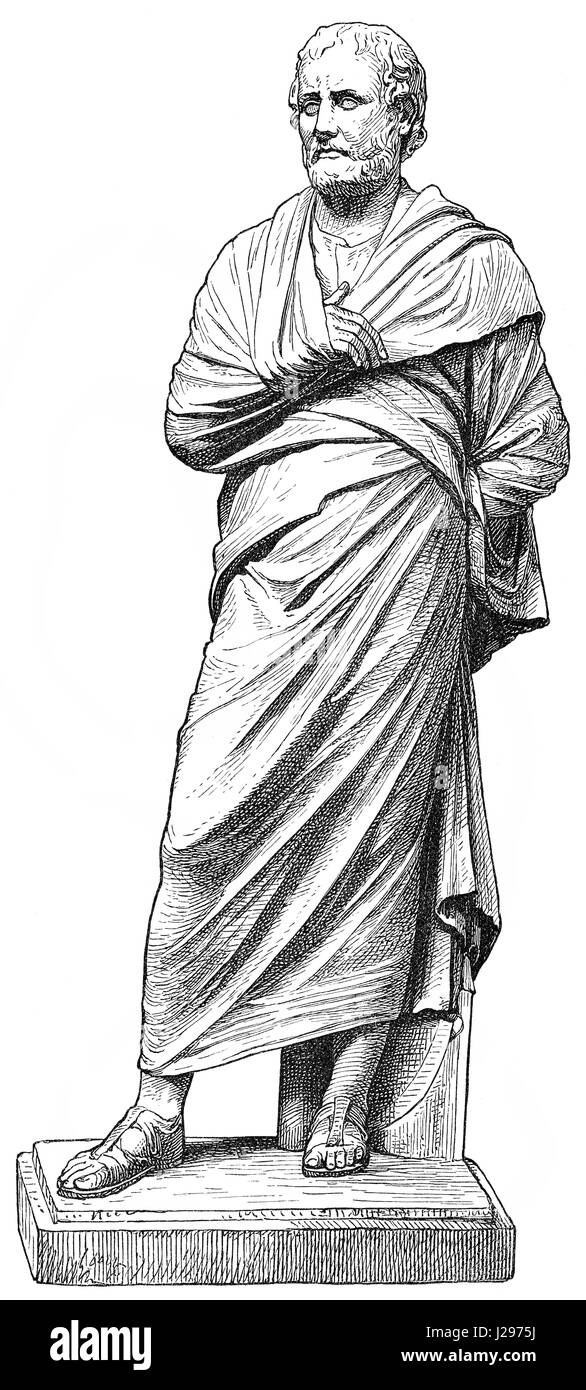


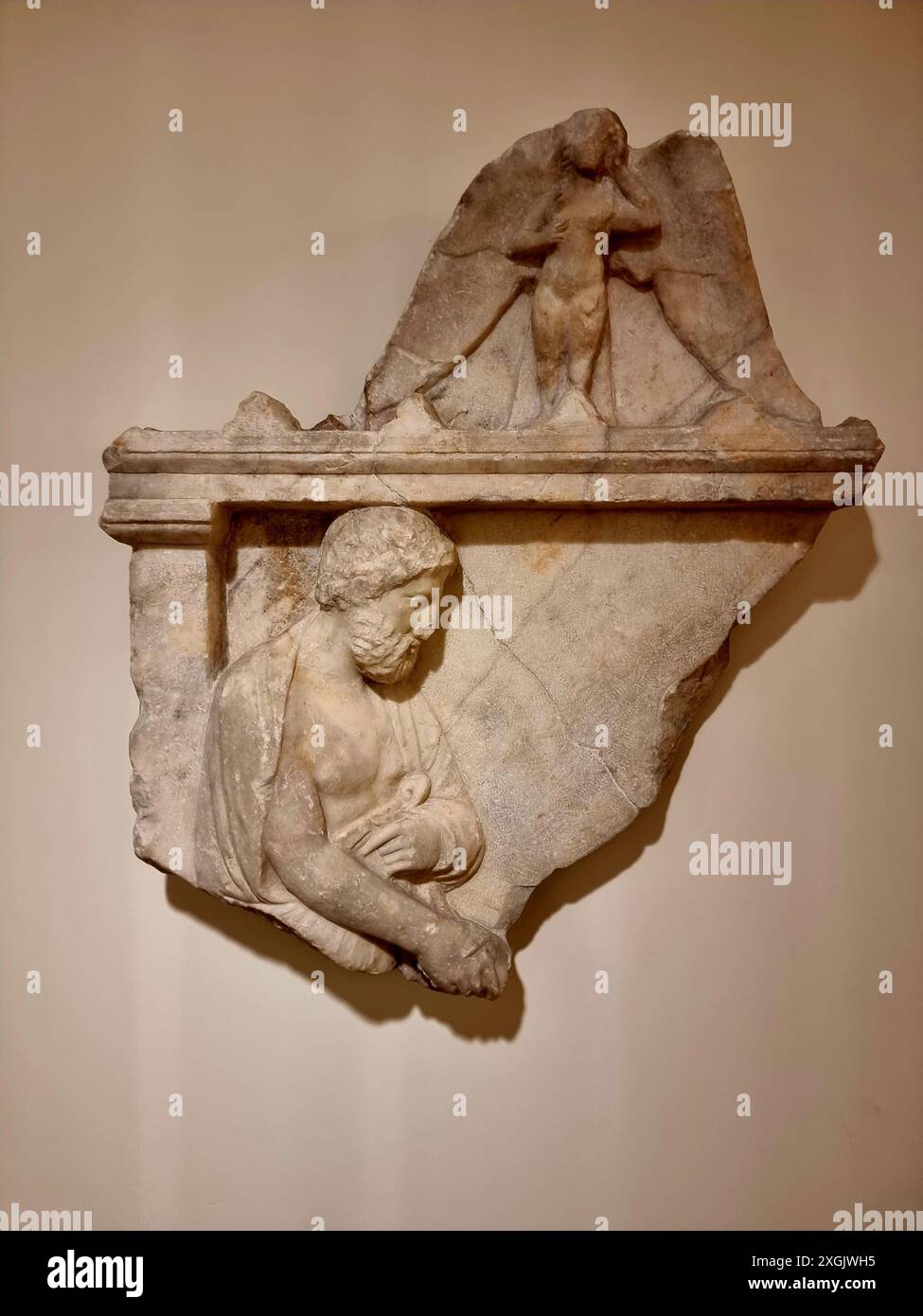
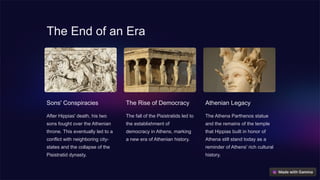


Comments